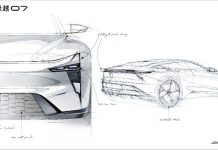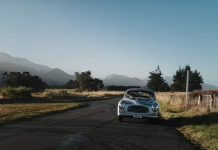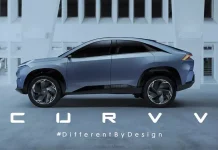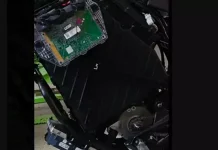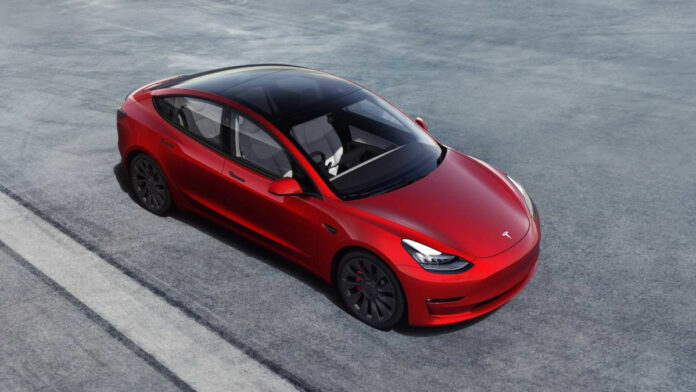Technological Maturation
The automotive industry is at a pivotal juncture, transitioning from traditional internal combustion engine (ICE) vehicles to electric vehicles (EVs). A recent study, encompassing over 330,000 vehicles from model years 2000 to 2024, brings forth critical insights into this shift. Notably, it indicates that, on average, EVs are 79% less reliable than ICE vehicles. This finding is surprising, considering the generally held belief that EVs, with fewer moving parts and simpler drivetrains, would inherently be more reliable.

EV Reliability Concerns
Key Analysis
Study Overview
- Scope: The study’s broad range, covering various models over two decades, provides a comprehensive view of automotive reliability trends.
- EV Reliability: Despite technological advancements, EVs lag in reliability compared to ICE vehicles. This could be attributed to the nascent stage of EV technology and the complexities associated with it.
- Plug-in Hybrids: Interestingly, plug-in hybrids fare worse, being 146% more problematic than ICE models. This could be due to the dual complexity of managing both electric and combustion systems.
- Traditional Hybrids: Contrasting with EVs and plug-in hybrids, traditional hybrids emerge as the most reliable, surpassing even ICE models in dependability.
Consumer Confidence
Reasons for Lower EV Reliability
- Technological Challenges: The lower reliability of EVs is primarily attributed to the newness of the technology. Integrating advanced electronics, battery systems, and software into vehicles brings initial teething problems.
- Manufacturing and Quality Control: As automakers rapidly shift to EV production, challenges in manufacturing processes and quality control could be contributing factors.
Impact on EV Enthusiasts
Enthusiast Perspective
- Initial Skepticism: This study might sow seeds of doubt among potential EV buyers, particularly those already sceptical about the technology’s reliability.
- Brand Loyalty and Trust: Established EV brands with a track record of addressing issues, like Tesla’s Model 3, may retain customer trust, as suggested by Jake Fisher of Consumer Reports.
Market Implications
- Consumer Hesitancy: Potential buyers might hesitate to invest in EVs or plug-in hybrids, opting for the perceived safety of ICE or traditional hybrid models.
- Demand Dynamics: The report could influence market dynamics, possibly slowing down the adoption rate of EVs.
Adoption Hesitancy
The impact of the study indicating lower reliability of electric vehicles (EVs) compared to internal combustion engine (ICE) vehicles is multifaceted and has significant implications for the EV market:
Consumer Confidence and Demand
- Hesitancy in Adoption: The study’s findings may create hesitancy among potential buyers who are considering transitioning to EVs. Concerns about reliability could lead them to opt for ICE vehicles or traditional hybrids, slowing the adoption rate of EVs.
- Brand Perception: Established EV brands with a history of addressing reliability issues, like certain Tesla models, may retain customer loyalty. However, newer or less established brands could face increased scrutiny and skepticism from consumers.
Industry Response and Innovation
- Focus on Quality Improvement: The study could prompt EV manufacturers to prioritize enhancing the reliability of their vehicles. This could lead to innovation in battery technology, software integration, and overall vehicle design.
- R&D Investment: Automakers may increase their investment in research and development to overcome the reliability challenges highlighted in the study. This could accelerate advancements in EV technology.
Market Differentiation
- Segmentation Based on Reliability: The market might see a more pronounced segmentation where certain EVs are preferred for their reliability over others. This could alter competitive dynamics in the EV space.
- Niche Markets: Specific segments, such as luxury EVs or commercial electric vehicles, might emerge as more reliable and therefore more attractive to certain consumer groups.
Regulatory and Policy Impact
- Government Policies: The findings could influence government policies related to EV incentives and infrastructure development. Policymakers might take these findings into account while designing regulations and support mechanisms.
- Standards and Benchmarks: There could be a push for stricter standards and reliability benchmarks for EVs, which would help improve overall vehicle quality.
Global Market Impacts
- Regional Variations: The impact might vary regionally, with some markets being more receptive to continuing EV adoption despite reliability concerns, possibly influenced by stronger environmental policies or incentives.
- Competitive Advantage: Automakers in regions where EV technology is more advanced might gain a competitive advantage if they can demonstrate superior reliability in their EV models.
Long-term Market Trends
- Gradual Improvement in Perception: As technology matures and reliability issues are addressed, the perception of EVs is likely to improve, potentially leading to a rebound in consumer interest and market growth.
- Sustainable Transition: Despite the short-term challenges, the long-term trend towards sustainable transportation and reduced carbon emissions is likely to sustain the growth of the EV market.
Innovation and R&D
While the study presents immediate challenges for the EV market, it also opens opportunities for improvement and innovation. The EV market is dynamic and resilient, and it is likely to adapt and overcome these challenges as part of its evolution.
Pros and Cons
Pros
- Awareness and Improvement: Highlighting these issues is essential for improvement. It pressures manufacturers to address reliability concerns.
- Informed Decision Making: Consumers can make more informed decisions, balancing environmental benefits with reliability considerations.
Cons
- Negative Perception: The study risks creating a negative perception of EVs, potentially hampering the progress towards sustainable transportation.
- Generalization: The study might overgeneralize the state of EV technology, not accounting for the rapid advancements being made.
Conclusion
The study presents a nuanced view of the current state of vehicle reliability, particularly in the context of the automotive industry’s shift towards electrification. While it underscores the challenges faced by EVs in terms of reliability, it also sheds light on the inherent potential of these vehicles as the technology matures. For EV enthusiasts and potential buyers, the study serves as a reminder to weigh the pioneering nature of EV technology against the current reliability issues. It also emphasizes the need for automakers to prioritize quality and reliability in their rush to electrify their fleets.
The findings are a call to action for the industry, highlighting the importance of refining EV technology and production processes. As the industry evolves, it’s likely the reliability of EVs will improve, eventually matching or surpassing that of ICE vehicles. In the interim, consumers and enthusiasts must navigate these findings with a balanced perspective, recognizing both the limitations and the transformative potential of electric vehicles.



